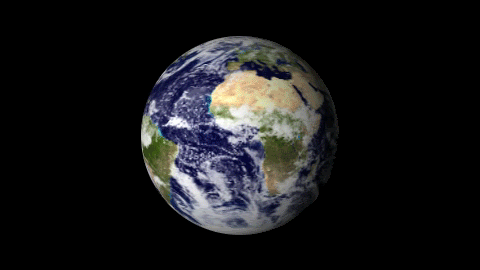Happy International Mother Earth Day!
Time to get down on the grass and give her a big hug.
Image cutesy of NASA
22 April 2012
15 April 2012
Thoughts on the Mass Effect Series and its Conclusion
I love science fiction, and that's probably why I love astronomy. Or is it the other way around?
Having just completed the Mass Effect series from Bioware and feeling particularly inspired I thought I'd lay out my thoughts on the game and some of the controversies surrounding the reception it got from its fans.
Spoiler free-ish!
One reason why I think this series is such a success is because it's so grounded in reality. Think about it, if we were to make contact with other races from elsewhere in the galaxy, Mass Effect is one of the most believable examples of how the resulting events would unfold.
I'm referring more to the political and social aspects of the Mass Effect universe, because if life evolves similarly all over the galaxy then we can expect that other species would have roughly the same needs as humanity. Natural resources is what I think of first, but if you take into account our ever growing population on Earth, space travel and the search for new habitable planets start to move to the top of the list very quickly. There is no reason to think that a successful species on another planet wouldn't inevitably come up with the same solutions.
Although it's easy to say that the technological and biological aspects of the Mass Effect universe are completely fictional and speculative, there are still very convincing links to reality to be found throughout the story. Granted, we might not find as many bipedal humanoid species as there are in Mass Effect, but our biological structure is only a response to the environment in which it evolved in. The chances of us finding similar environments to Earth on other planets are quite high. So again, there is no reason to believe that we won't discover more humanoid life in the galaxy. Taking into account that we evolved from our mammalian ancestors, why couldn't a race like the Salarians evolve from their amphibious ancestors. A more likely evolutionary stage we might encounter is that of the Elcor, whose biology evolved to serve the very specific purposes of surviving on a planet with very high gravity. Since we're finding more and more multiple Earth mass planets around other stars, we might be having some very dreary and monotonous conversations in the future.
On technology, Biotics and mass effect fields are probably the most fictional things in the Mass Effect universe, but are also the things that really make it all possible. So here is where we need to suspend our disbelief in order to buy into the reality. Psych! Actually, the only thing we need to accept for the Mass Effect reality to be real is that mysterious element, Element Zero or Eezo. If I was listening properly, mass effect fields are created by sending positive or negative electrical charges through this element, resulting in different effects. Hold on a minute, but don't we also have a mysterious substance which profoundly affects how our universe has formed to the present day? Yes! Dark matter and dark energy are two of the major components of our universe, and are the two things which we know the least about. If we were to solve these two mysteries, we might find the key to our own Mass Effect reality. Perhaps dark energy will allow us to control gravitons, giving us the ability to create real artificial gravity in space. Just like in Battlestar or every other science fiction series or movie ever made! Or, perhaps it will allow us to reach that most holy of space grails, faster than light travel. Now, I'm not going to talk about Biotics, because what the hells going on there!? However, let me serve up a huge cheesy corn dog and say that humanitys only limit is it's imagination and curiosity, and I hope that we never run out of those two things.
Now just a quick note on the people who shouted "Betrayal!" after playing Mass Effect 3 and just so you know, what I have to say is a mix of things I read elsewhere which I agree with and various brain farts that I've had myself. This is Biowares baby, it's up to them how the story ends and up to us to enjoy it or not, and I for one think that it was a great ending. I know science fiction fans can be some of the most sensitive when it comes to the titles they love, just look at Star Wars Episode 1, but petitioning for Bioware to change the ending of Mass Effect 3 was a huge over reaction. I'm not sure what the haters expected to find at the end of this fantastic game series, but it might have been something like this; A complete and comprehensive explanation of why the universe and life exists and what it did after the Reaper crisis. Picture if you can, the freeze frame end sequence from Animal House. This would have been a terribly tedious way to end such an original and exciting gaming experience. I won't mention how the crisis of the Reapers ends but the game ends in a way that every good science fiction story should end. Open and ready for our amazing brains to fill in the rest with our imagination. As far as what happens to Shepard at the end, I will only say that he wouldn't have seemed as much of a hero any other way.
I'd like to thank and commend Casey Hudson and crew on this fantastic trilogy and for many hours of awesome gaming.
Labels:
astronomy,
ending,
gaming,
Mass Effect,
Mass Effect 2,
Mass Effect 3,
review,
Science fiction
Location:
Cork, Co. Cork, Ireland
13 April 2012
Space Just Got Saucier!
I'm very proud to say that my good friends at Dog Day Media have succeeded in launching my favorite relish in the world, off of this world.
A mystery no doubt, but what we do know is that relish still tastes great after being sent to chill in the stratosphere.
Although not strictly in space (96,500ft to be exact), this was quite a feat, making this the loneliest jar of relish in the solar system, and possibly the galaxy. Who knows, perhaps life was spawned on Earth from an extraterrestrial jar of relish crashing down when our planet was young.
A mystery no doubt, but what we do know is that relish still tastes great after being sent to chill in the stratosphere.
Labels:
Ballymaloe,
relish,
space,
stratosphere,
weather balloon
Location:
Cork, Co. Cork, Ireland
Subscribe to:
Posts (Atom)




